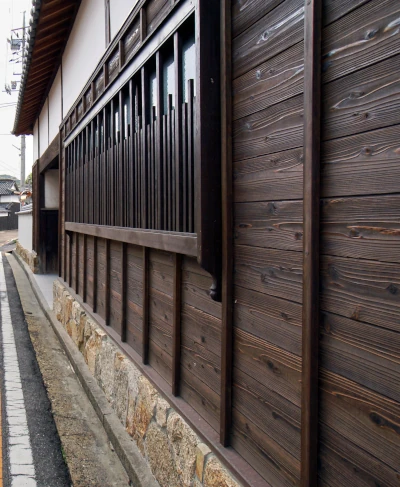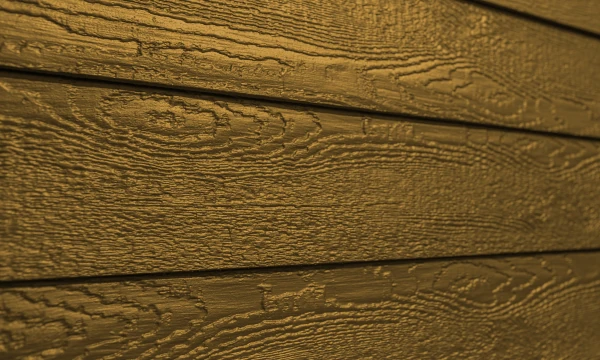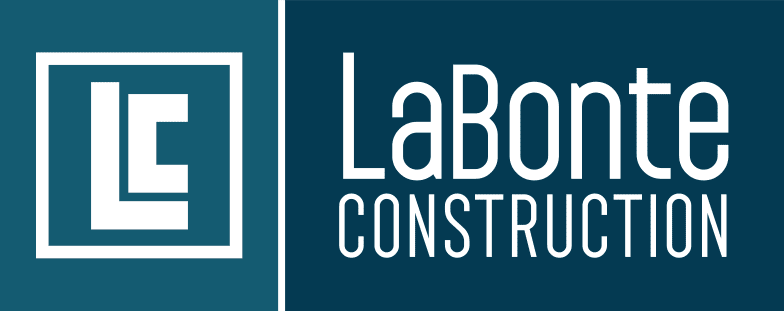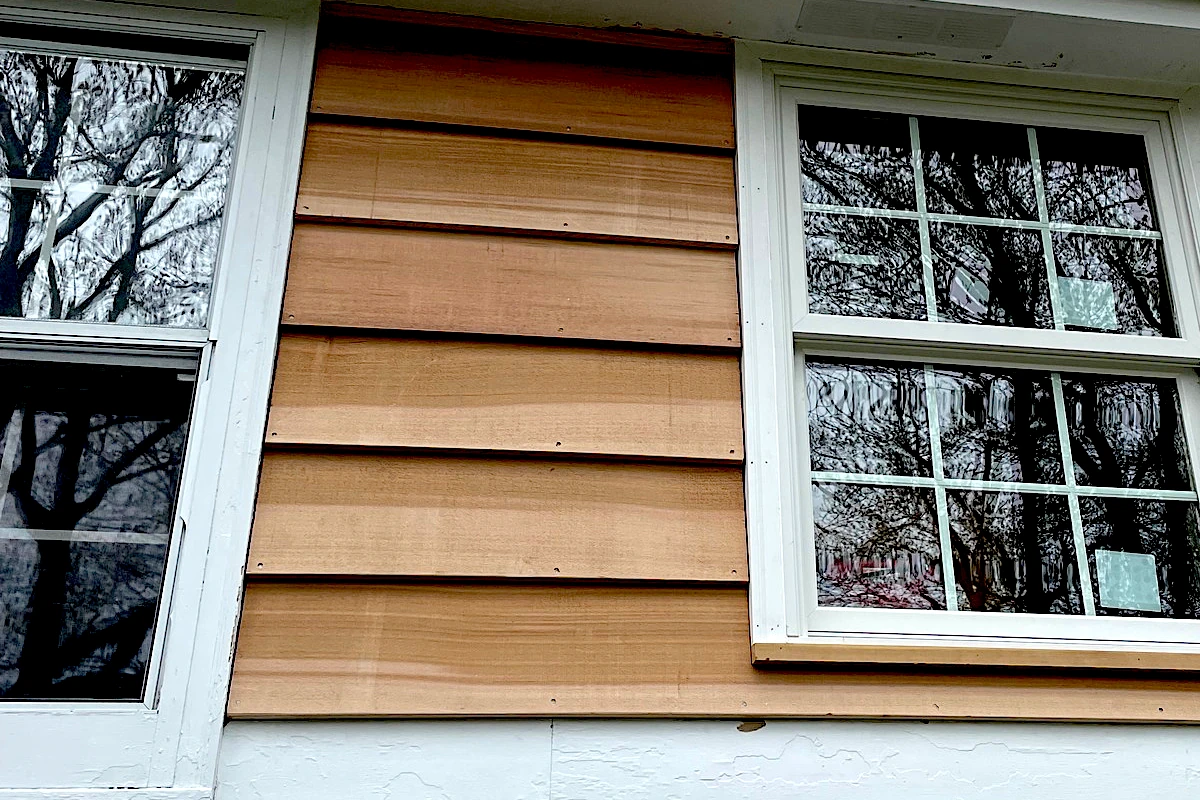This guide to home siding discusses the most popular types in the Midwest, as well as some popular options nationwide. We hope we can help you choose the right one for your home remodeling project.
The U.S. Census Bureau publishes Characteristics of New Housing, updated monthly and annually. One report tracks exterior siding used on new single-family houses. The table below compares siding types used in the Midwest and nationwide.
| Siding Material | Midwest | US |
| Vinyl | 60% | 26% |
| Wood | 17% | 4% |
| Fiber cement | 12% | 22% |
| Brick | 7% | 19% |
| Other* | 2% | 2% |
| Stucco | 1% | 27% |
| *Other: concrete block, stone, aluminum siding, and other types. | ||
| Source: Primary Type of Exterior Wall Material of New Single-Family Houses Completed, U.S. Census Bureau. | ||
Nationwide, stucco was the most popular siding in 2021, covering 27% of homes. But in the Midwest, stucco adorned just 1% of homes. That’s below the “Other” category, which included concrete block, stone, aluminum siding, and other types.
Another notable difference is the popularity of wood siding in the Midwest. Wood was chosen for 17% of houses in the Midwest—behind only vinyl (60%). Nationally, wood was used in only 4% of houses, ranking just above “Other” (2%).
In Southeastern Wisconsin, most of our luxury remodeling projects use cedar siding. When we are remodeling a client’s home, some want us to match their existing siding.
Others elect to upgrade their siding to a newer, lower-maintenance, or more luxurious material.
Guide to Home Siding: Wood
In Milwaukee, we most often see clear cedar siding. Clear means there are no knots in the wood, allowing for a nicer surface finish and a less rustic look if stained.
On the downside, clear siding can double the material budget of an exterior remodeling project.
Wood siding comes in many profiles and patterns. Here are the ones we see the most:
- Clapboard
- Bevel
- Shiplap
- Nickel gap
- Dutch lap
- Tongue & groove
- Wavy edge
Wood siding also comes in different thicknesses, allowing your remodeling contractor to create the exposure you want. This exposure is referred to as “to the wind” by builders and lumber suppliers.
Most of our home remodeling clients paint or stain their wood siding. To help your siding last longer, we recommend treating it before you install it, so that you can treat all surfaces.
Depending on the thickness of your finish, exposure to the elements, and installation method, paints and stains can last anywhere from a year to 25 years.
Shou Sugi Ban

If you want long-lasting wood siding without painting or staining, consider shou sugi ban—an ancient Japanese wood-burning process.
The siding’s longevity comes from the residual layer of char left over from burning and the coating of oil applied afterwards.
Shou sugi ban also creates a beautiful, black finish—which can be a great look for a traditional or modern home.
Here are some advantages of the shou sugi ban-treated siding:
- Low maintenance
- resistance to decay and rot
- insect repellant properties
- lack of chemicals
- Sustainability
While shou sugi ban treatment can be done on the home building site, it is best done in a controlled environment with purpose-built machinery to provide a uniform finish.
Guide to Home Siding: Fiber Cement
Modern fiber cement siding premiered in the 1980s. (The original formula—dating to the early 1900s—included asbestos.) It now consists of portland cement, sand, water, and cellulose fibers.
Pros
- Durable: Some companies offer a 50-year warranty
- Rigid, while maintaining some flexibility
- Easy to paint
- Low maintenance
- Warp resistant
- Fire resistant
- Insect resistant
Cons
- Heavy
- More expensive
- Brittle—may chip or crack
- Dusty when cut
Fiber cement is long lasting and provides excellent overall value. Generally, it costs less than brick, synthetic stucco and some wood siding options. It’s typically equally or less expensive than hardboard or composite siding, and more expensive than vinyl.
Guide to Home Siding: Metal
Metal siding is becoming increasingly popular among homeowners, including in Wisconsin.
Pros
- Low maintenance
- Insect resistant
- Durable
- Fire-resistant
- Recyclable
- Energy-efficient*
- Many colors, styles and profiles
*Metal siding reflects heat in summer. But it won’t absorb as much of the sun’s heat in winter, so make sure walls are well insulated.
Cons
- Expensive:
- Vinyl siding = $2.50 and $10.75 per square foot.
- Fiber cement = $5 and $15 per square foot.
- Metal siding = $7 and $16 per square foot.
- Brick veneer siding = $11 and $24 per square foot.
Prices from Family Handyman website (August 2022).
- Installation: Generally much heavier than vinyl siding and more difficult to cut.
- Dents: Hard impacts from tree branches, vehicles, sports equipment and even hammers during installation can dent a metal panel. This kind of damage is a pain to repair or replace.
Guide to Home Siding: Vinyl
A durable form of plastic commonly used on the exterior of homes, vinyl comes in many colors and styles. Some styles imitate the look of wood and other siding materials.
Nationwide, vinyl siding was a close second to stucco for the most popular exterior on new houses completed in 2021. In the Midwest, though, vinyl was easily the most popular, covering the exterior of 60% of new houses.
The US Census survey did not differentiate between insulated and standard vinyl siding, but it’s worth examining.
Insulated vs. Non-Insulated Vinyl Siding
Since its appearance in the 1990s, insulated vinyl siding (also known as foam-backed siding) has solved many of the problems of standard vinyl siding.
- Provides insulation from the weather.
- the foam layer also absorbs impacts that could crack or dent traditional vinyl siding.
- The foam layer can also conceal some of the natural shifting and settling of walls over time.
But standard, non-insulated vinyl siding may be a better choice if you:
- Have a lower home remodeling budget. Few siding materials are less expensive than vinyl siding.
- Aren’t concerned about the long-term appearance or durability of the siding, like when flipping a home for quick sale.
- Plan to install it yourself but have limited installation experience.
Guide to Home Siding: Engineered Wood

In engineered wood siding, wood strands are broken down and mixed with resins and waxes to improve strength and performance. In addition, it’s also flexible and gives the look of real wood to your home.
Most brands are made with zinc borate. This additive helps the wood resist rot, fungal decay, and termite damage.
Pros
- Impact-resistant.
- Weather-resistant (hail damage, wind, moisture).
- Protection against rotting and termites.
- Can be installed quickly.
- Flexible with temperature changes.
Cons
While engineered wood siding has many advantages in durability and aesthetics, its disadvantages are similar to wood siding.
- Wood can still rot.
- Water and termite infiltration, if not installed properly.
- Wood fibers are flammable.
Note: Professional installation can help ensure that your engineered wood siding will last a long time.
Get the Best Siding for Your Remodeled Home
When you’re ready to discuss siding for your home remodeling project, contact us at LaBonte Construction.
We were voted Best of Milwaukee 2024 by Shepherd Express readers in the Home Remodeling, Basement/Rec Room Remodeler, Bathroom Remodeler, and Kitchen Remodeler categories.

